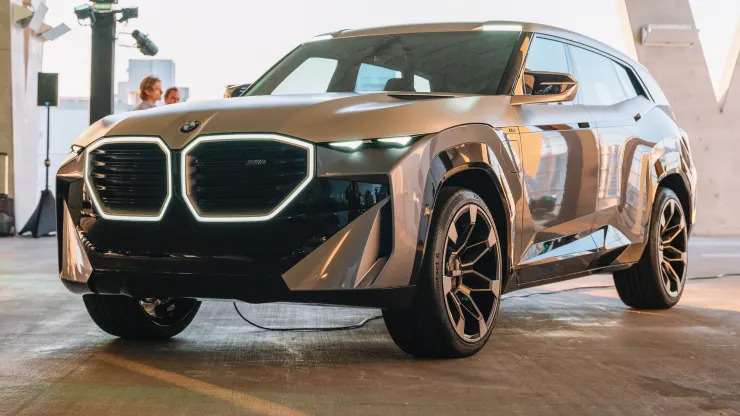BMW Group intends to invest $1.7 billion in its U.S. operations in order to manufacture electric vehicles. The business plan also includes the production of batteries.
The investment will include $1 billion for electric vehicle production at BMW’s South Carolina plant. Another $700 million are invested in a high-voltage battery-assembly facility in nearby Woodruff, which is located in the same state in the United States. BMW also announced a deal with Japan-based Envision AESC to purchase battery cells. In South Carolina, this company will construct a new battery cell factory.
The new hybrid-electric BMW XM is to go into production later this year
BMW Group intends to invest $1.7 billion in electric vehicles. The investment will include preparation for EV production at the automaker’s existing Spartanburg, South Carolina, plant.
The German automaker anticipates producing at least six fully electric models in the United States by 2030. The Spartanburg plant currently manufactures BMW “X” SUVs as well as lithium-ion battery modules for the company’s two plug-in hybrid electric vehicles.
The new hybrid-electric BMW XM goes into production later this year.
Battery production is a good business
BMW Chair Oliver Zipse also announced a deal with Japan-based Envision AESC to purchase battery cells from their new battery cell factory in South Carolina to supply BMW plants.
The annual production capacity of the Envision AESC facility probably will be 30 gigatonnes. It is consistent with other automakers’ and battery suppliers’ plans for US plants.
A spokeswoman for Envision AESC said the new plant will be a multibillion-dollar investment, but she did not specify how much. She stated the facility’s location will be announced by the end of the year.
In April, the company announced plans to invest $2 billion in the construction of a second U.S. plant in Kentucky. Nissan Motor is supplied by its first plant in Tennessee. Its other major customer in the United States is BMW, and discussions with a number of global automotive manufacturers and partners are ongoing.
There will be cell factories in Europe and China
BMW has already announced the construction of four additional battery cell factories in Europe and China to meet the company’s demand for next-generation battery cells. The announcements are the most recent in a series of multibillion-dollar investments in US EV and battery production in the face of tightening emissions regulations and legislation to encourage domestic manufacturing.
Automobile manufacturers are also subject to stricter sourcing guidelines as part of the Inflation Reduction Act and the United States-Mexico-Canada Agreement, formerly known as the North American Free Trade Agreement. Both policies increased the requirements for domestically sourced vehicle parts and materials in order to avoid tariffs or qualify for financial incentives.

